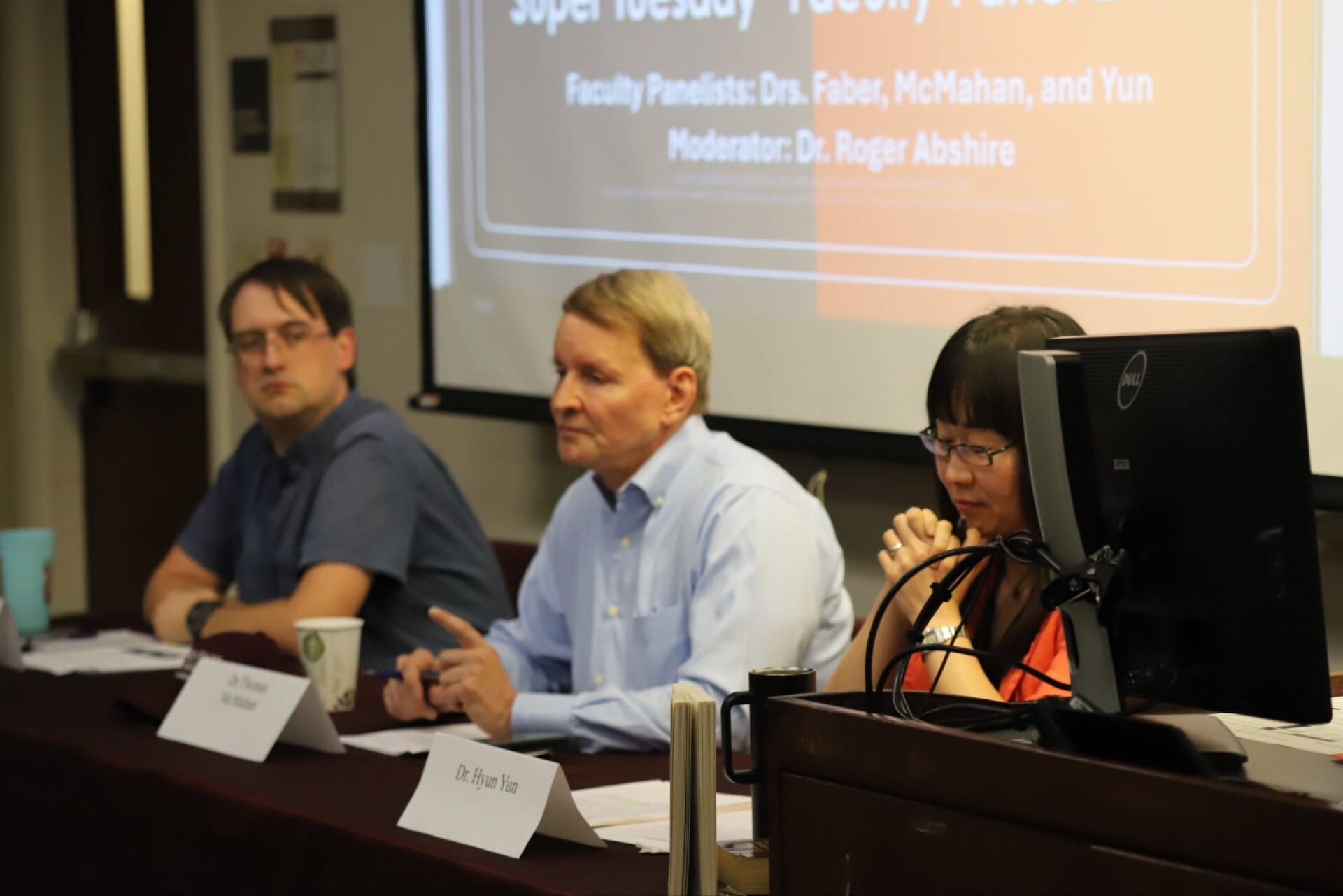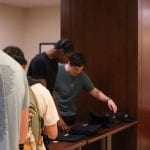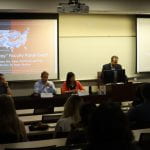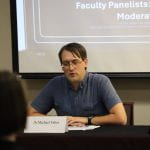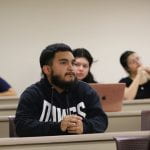On Wednesday, March 5th, the Department of Political Science organized a faculty panel to discuss the results of Super Tuesday – the day on which several U.S. states hold their primary elections, and there implications for the upcoming presidential election. Over 50 students attended to hear Drs. Michael Faber, Hyun Yun, and Vance McMahan explore and elucidate the election results.
Each panelist weighed in on different aspects of the Super Tuesday vote. Dr. Hyun Yun offered an analysis of each party’s political messaging strategy. She commented on the efficacy of each strategy and highlighted specific focus areas for students to monitor in the upcoming months. One focus area she highlighted was the exit of Trump’s primary opponent Nikki Haley. Although Haley ultimately ended her nomination bid after failing to secure enough party delegates, Dr. Yun questioned whether Haley’s voters would ultimately unite behind the party to vote for Trump in the general election. She suggested that Haley’s appeal as a more moderate candidate may influence her supporters to cast their vote for another party candidate, thereby frustrating Trump’s reelection bid.
Dr. Vance McMahan commented on the political tension and infighting that manifested itself in Texas’ Republican primary. The infighting pitted Governor Abbott against Republican members of the Texas House who refused to support his school choice agenda, and Attorney General Paxton against Republican House members who supported his impeachment and three GOP members of the Court of Criminal Appeal that had limited his authority over election law violations. Challengers supported by Abbott and Paxton won many races outright and forced others in runoff including the Texas House Speaker Dade Phelan. McMahan suggested the results showed the commitment of the Republican leadership to fund and support insurgent candidates who will strictly adhere to the party line on key conservative issues such as school choice and illegal immigration.
Dr. Michael Faber explained the origins of Super Tuesday and how it was initially coordinated by southern states to give them a competitive edge as a geographic voting block in the nomination process. Upon recognizing this advantage, other states began scheduling their primaries on the same day, thus creating the current national version of Super Tuesday. Dr. Faber also fielded questions from students regarding the nomination process. One student asked about the potential benefits of having a “national primary” or a system where all states hold their primaries on the same day. Dr. Faber argued that system would be detrimental because it would give a huge advantage to better-known and better-funded candidates since they would be the only ones with enough resources to “get out the vote” before the election. Lesser-known candidates would not have enough time or exposure to be relevant in the process, thereby reducing the overall competitiveness of the primary. Dr. Faber also argued that delegate-rich states like Texas and California would receive disproportionate attention from candidates, resulting in candidates neglecting to visit other states. Another student expressed concerns about the legitimacy of Trump’s candidacy considering his recent criminal charges. Dr. Faber suggested that the Constitution does not expressly forbid a convicted felon from running for office, but emphasized that these concerns are unprecedented, and it is unclear how Trump will proceed if he is convicted in a court of law. Dr. Faber theorized that Trump could technically pardon his federal offenses if he is reelected. However, Dr. Faber quickly noted that it would not resolve his criminal charges at the state level since his pardon power only extends to federal crimes.
After the conclusion of the event, several students met with the panelists one-on-one to ask additional questions about the political ramification of this year’s Super Tuesday vote.

